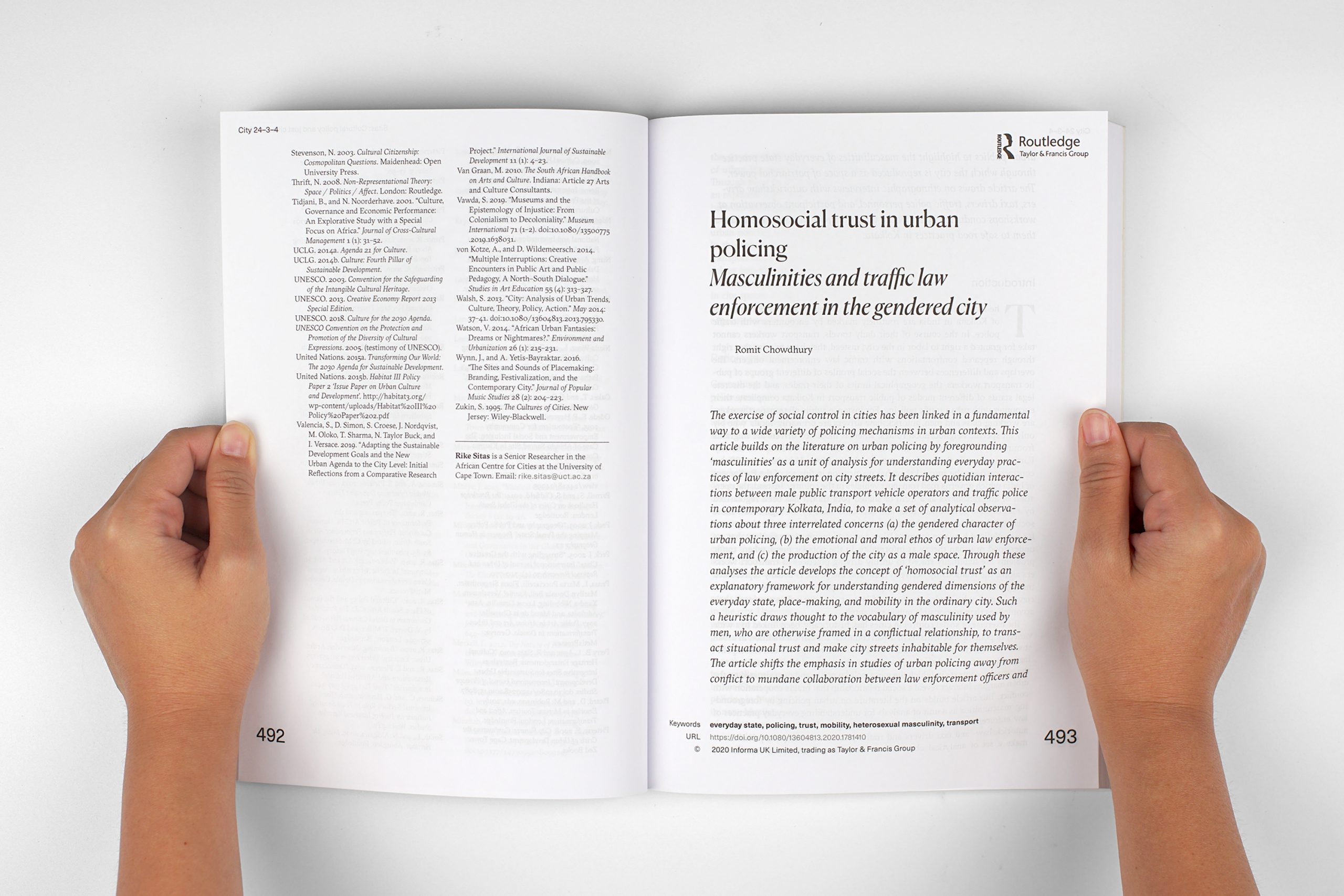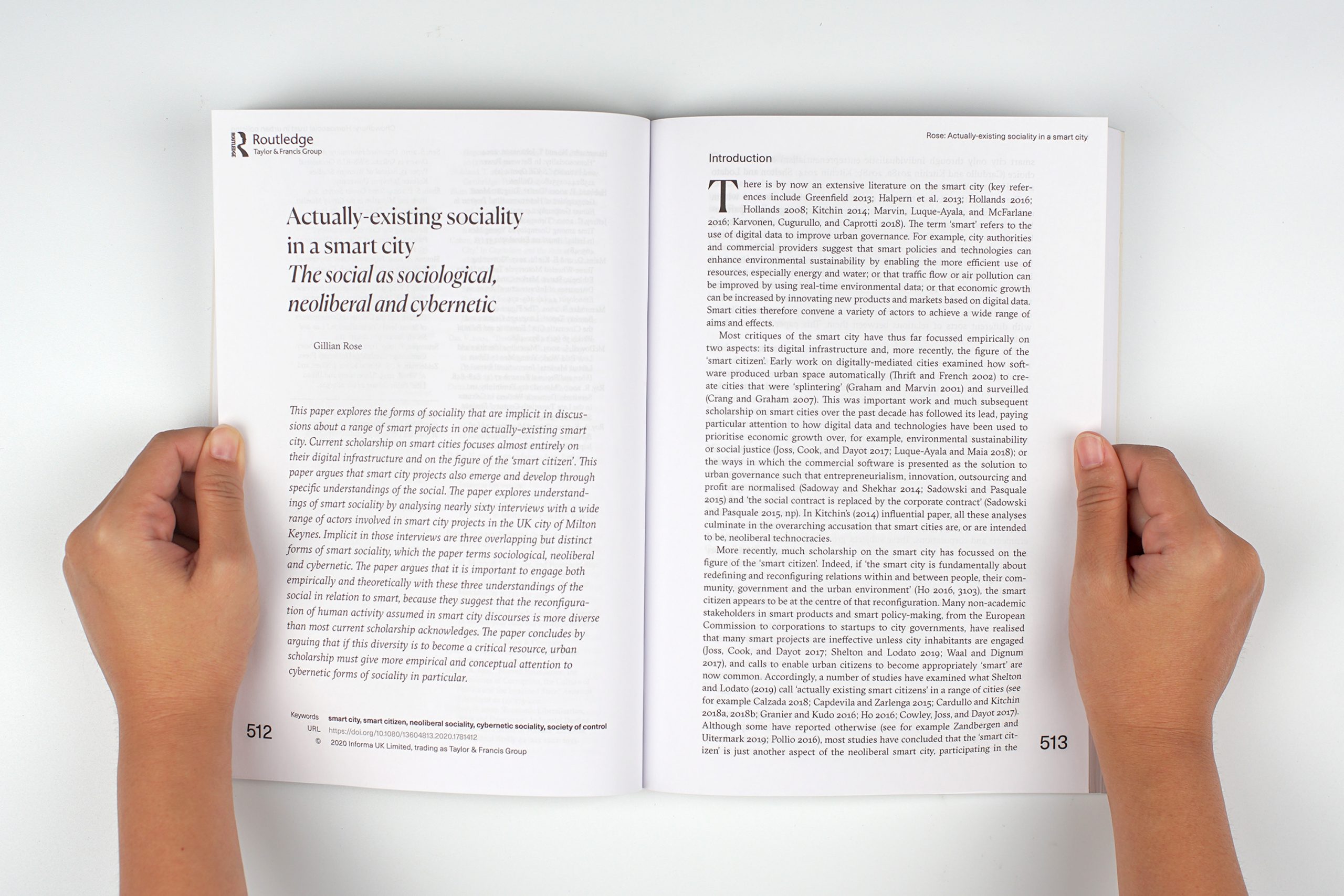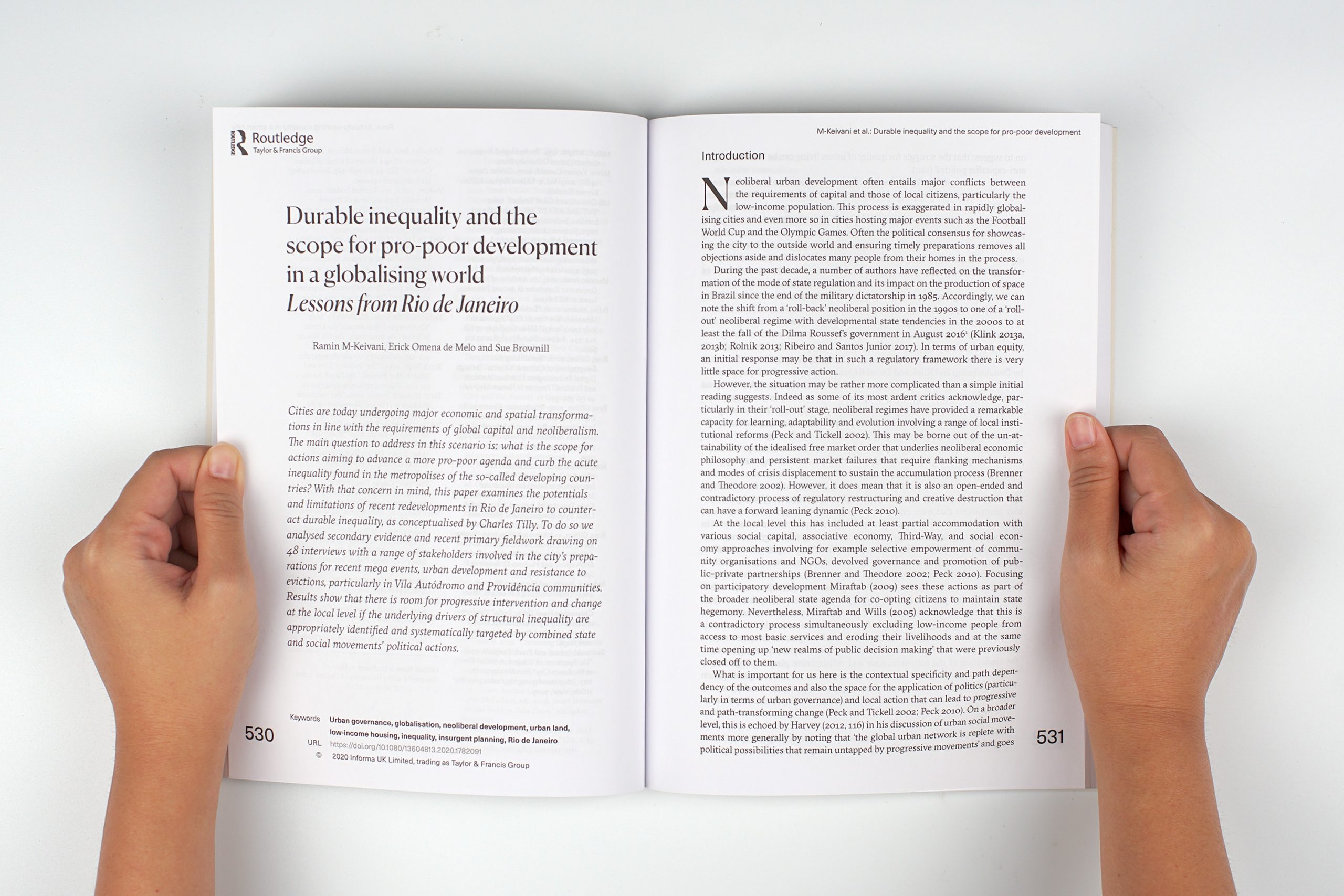English
UK
25 x 17.5 cm, 676 pages, b/w, offset, perfect bound, softcover
Last week, in the midst of lockdown, I attended a DPAC (Disabled People Against Cuts) online event for Ellen Clifford’s book launch and rally (DPAC 2020a). Ellen’s book, The War on Disabled People (2020), recounts DPAC’s struggles against the past decade of austerity in the UK, situated in the historical context of exclusionary capitalism, whilst providing a contemporary activists’ guide for a more socially-just alternative. Ellen said the hardest thing about writing her (brilliant) book was not the writing or the research, but the authorial demand that she put herself forward as an individual, not as a collective. The book launch, therefore, was a deliberate return to collaboration, consisting of a rapid and rousing succession of speakers, a solidarity event kick-started by a radical poem and accompanied by kick-ass live music. The event brought DPAC campaigners and supporters together, eliding space as participants connected from across the UK, Greece, the United States and Uganda. A solidarity event full of love, shared pain, remembrance and intention.
This is just one example of campaigning in the time of coronavirus. Writing about a moving target is an unstable business, but we can begin to think about what new connections, concepts, practices and potentials are emerging from the technologies of lockdown and the modalities of crisis. The calm and the storms of these Covid-19 times are generating new forms of struggle, a hybrid urbanism (Leontidou 2015, 2020) combining online and on-the-streets campaigning, generating a productive dialectic. I speak from my position in London, the UK, but try to make sense of what I have heard and observed through my own campaign networks of resistance in the broader international context.
It may seem ironic that while we are being contained in so many spatial, social and economic ways during the coronavirus pandemic, resistance is being unleashed in force, en masse and in multiple ways. Campaigning during Covid-19 is as large as the thousands of movements marching under the banner of Black Lives Matter and as small as a local North London campaign up the road from where I live to prevent one young woman from being illegally evicted (not small for her of course, scale shifts depending where you stand). — Debbie Humphry
แอนเดรียร์ กิ๊บบอนส์, แอนนา ริคเตอร์, แอนโทนิส วราดิ, เดวิด แมดเดน, เดบบี้ ฮัมพ์ฟรีย์, เมลิสสา เฟอนานเดซ-อาริโกอิเทีย, มิเชล ลังซิโอเน (บรรณาธิการ)
ภาษาอังกฤษ
อังกฤษ
25 x 17.5 ซม, 676 หน้า, ขาว/ดำ, ออฟเซต, ไสกาว, ปกอ่อน
เมื่ออาทิย์ก่อน ระหว่างช่วงลอคดาวน์ ฉันได้เข้าร่วมใน DPAC (Disabled People Against Cuts) อีเวนท์ออนไลน์เพื่อเปิดตัวหนังสือของ เอลเลน คลิฟฟอร์ด และการชุมนุม The War on Disabled People (2563) เล่าถึงการต่อสู้ของ DPAC ในทศวรรษที่ผ่านมา ที่ตั้งอยู่บนบริบททางประวัติศาสตร์ทุนนิยมแบบกีดกันของสหราชอาณาจักร ในขณะเดียวกันก็ให้คำแนะนำนักเคลื่อนไหวร่วมสมัยเกี่ยวกับทางเลือกที่ทำให้สังคมเป็นธรรมมากขึ้น เอลเลนกล่าวว่า สิ่งที่ยากที่สุดเกี่ยวกับการเขียนหนังสือของเธอไม่ใช่การเขียนหรือการวิจัย แต่เป็นความต้องการในฐานะผู้แต่งในการพาตัวเองไปข้างหน้าในฐานะปัจเจก ไม่ใช่ในฐานะกลุ่ม ดังนั้นแล้วงานเปิดตัวหนังสือจึงเป็นการกลับมาสู่ความร่วมมือกัน อันประกอบไปด้วยนักพูดเร็วที่ปลุกเร้าอารมณ์ เริ่มต้นด้วยการอ่านบทกวี และตามด้วยดนตรีสดอันน่าตื่นเต้น
นี่เป็นเพียงหนึ่งในตัวอย่างของการรณรงค์ในช่วงไวรัสโคโรน่า การเขียนเกี่ยวกับเป้าหมายที่กำลังเคลื่อนที่เป็นงานที่ไม่ง่ายเลย แต่พวกเราสามารถที่จะเริ่มคิดเกี่ยวกับสิ่งที่จะเป็นความสัมพันธ์ใหม่ แนวคิด วิธีการ และความเป็นไปได้ที่เกิดขึ้นจากเทคโนโลยีของการลอคดาวน์ รูปแบบของวิกฤต ความสงบและปั่นป่วนในช่วงเวลาของโควิด-19 ได้ให้กำเนิดรูปแบบใหม่ของความยากลำบาก วิถีชีวิตแบบผสมผสาน (hybrid urbanism) (ลิยงทิดู 2548, 2563) ได้รวมเอาการรณรงค์ออนไลน์และบนถนนไว้ด้วยกันเพื่อสร้างการสนทนาที่มีประสิทธิผล
มันอาจจะฟังดูประชดประชัน แต่ในขณะที่เราถูกกักขังอยู่ในวิถีเชิงสังคมและพาณิชย์ ในช่วงเวลาการแพร่ระบาดของไวรัสโคโรนา การต่อต้านได้ปลดแอกออกมาเป็นจำนวนมากและในหลายทิศทาง การรณรงค์ในช่วงโควิด-19 มีขนาดใหญ่พอๆ กับการเดินขบวนเคลื่อนไหวของ Black Lives Matter และขนาดเล็กพอๆ กับการรณรงค์ป้องกันไม่ให้ผู้หญิงคนเดียวถูกขับไล่ออกไปแบบผิดกฎหมายในทางตอนเหนือของลอนดอนจากถนนที่ฉันอยู่ (ซึ่งแน่นอนว่ามันไม่ใช่เรื่องเล็กสำหรับเธอ แต่ขนาดของมันก็เปลี่ยนแปลงไปขึ้นอยู่กับว่าคุณยืนมองจากมุมไหน) — เดบบี้ ฮัมฟรีย์



